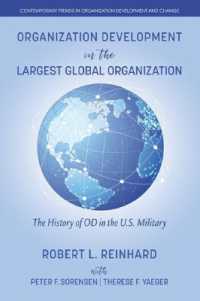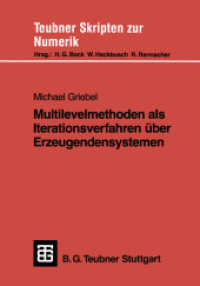Full Description
This book explores a long-standing of literary journalism form written in Portuguese and Spanish, around the Atlantic triangle of Africa, Latin America and Europe: the crónica. World literary journalism provides audiences and researchers with a wide scope of texts from multiple origins and diverse cultural and language contexts, thus expanding the range of corpus identified for academic study. Crónica, written in two global languages that together form a community of roughly 730 million native speakers across Africa, Latin America and Europe, allows audiences to partake in the lives and struggles of journalists and their fellow citizens, in both the Global North and the Global South. While these cultures share two European languages and a journalistic genre tradition, they also update and adapt it to their own contemporary realities and issues. This book aims to introduce academic and general audiences to an under-researched instance of literary journalism, how it is shared and intersected by multiple cultures and how, ultimately, it is kept distinct from other literary journalism products.
Contents
Chapter 1: This thing called crónica.- Chapter 2. Mozambican crónicas and Portuguese: the identitarian construct of Mozambique in the literary journalism of Craveirinha and Patraquim.- Chapter 3. Angolan contemporary crónicas: a constructive lens.- Chapter 4. The state of the crónica in Spain: influences, effects and consequences.- Chapter 5. Spanish intellectuals and their time: José Ortega y Gasset and María Zambrano, between journalism and current affairs.- Chapter 6. Understanding Latin America: Spanish narrative journalists writing in the region.- Chapter 7. Rodrigo Fluxá, Creator and Demolisher of the Chilean Crónica.- Chapter 8. Humour and irony as weapons of criticism portraying the Portuguese society: crónicas by Miguel Esteves Cardoso.- Chapter 9. Humouristic crónicas cast social and political criticism on Venezuelan society: Miguel Otero Silva under scrutiny.- Chapter 10. Writing as caring: Ethical dimensions of the crónica in Bernardo Santareno's Nos mares do fim do mundo.








